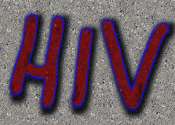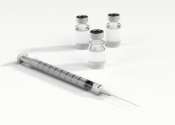Early HIV treatment: Research reveals critical gaps
In an article published in The Lancet HIV, authors including Distinguished Professor Denis Nash and Professor Constantin Yiannoutsos aim to provide the most comprehensive estimates of pediatric mortality among children and ...
Nov 6, 2025
0
0

HIV knows no borders, and the Trump administration's new strategy leaves Americans vulnerable, expert explains
Protecting public health abroad benefits Americans. In a globalized world, diseases and their social and economic impacts do not stay within national boundaries. Increased rates of untreated HIV in any part of the world increase ...
Nov 5, 2025
0
0

Missing nutrient in breast milk may explain health challenges in children of women with HIV
A new UCLA study reveals that breast milk from women living with HIV contains significantly lower levels of tryptophan, an essential amino acid likely important for infant immune function, growth, and brain development. This ...
Oct 28, 2025
0
30

Perineural pathway that fuels HIV persistence despite treatment identified
Addressing the question of whether and how immune cells (macrophages) in the central nervous system (CNS) traffic out, researchers have now identified a perineural pathway through which the HIV virus can redistribute throughout ...
Oct 28, 2025
0
0

Combined HIV vaccines can act in concert to achieve diverse antibody priming
Researchers at La Jolla Institute for Immunology, Scripps Research, and the Ragon Institute of MGH, MIT, and Harvard report coordinated studies showing that several HIV germline-targeting immunogens can be delivered together ...

How HIV disrupts sleep across Africa
HIV significantly affects sleep, with many affected people living in a state akin to chronic jet lag. A new study with Wits researchers published in The Lancet HIV describes how people living with HIV (PLWHIV) experience ...
Oct 27, 2025
0
0

HIV's shape-shifting protein reveals clues for smarter drug design
The rate of HIV infection continues to climb globally. Around 40 million people live with HIV-1, the most common HIV strain. While symptoms can now be better managed with lifelong treatment, there is no cure to fully eliminate ...
Oct 24, 2025
0
57

HIV prevention jab approved for use in England and Wales. Here's how it works
The first ever injectable drug that can prevent HIV has been approved for use in England and Wales.
Oct 23, 2025
0
0

HIV rates highest in the American South, despite effective treatments: A clash between culture and public health
The American South has the highest HIV rates in the country, accounting for more than half of new HIV diagnoses nationwide in 2023. This is despite the growing availability of a highly effective HIV prevention medication ...
Oct 16, 2025
0
0

Immunotherapy approach offers hope for long-term HIV control without daily medication
HIV remains a major global health issue, affecting nearly 40 million people worldwide. Current treatments, known as antiretroviral therapy (ART), are highly effective at suppressing the virus and preventing illness, but they ...
Oct 15, 2025
0
26

Project unearths voices from one of the world's first HIV/AIDS service organizations
Sometimes, you discover history in a garage, stored in dusty boxes, or in memories that go unspoken for decades. Often, it falls to the next generation—curious and respectful—to do the necessary work of sifting, sorting ...
Oct 15, 2025
0
0

South Africa's health minister hails new HIV prevention jab but warns of limited supply
South Africa's health minister on Tuesday called lenacapavir, the first twice-yearly HIV prevention jab in the world, a "groundbreaking" tool to fight the disease, but warned initial donated supply would be limited to nearly ...
Oct 14, 2025
0
0

New study finds skin conditions remain prevalent in people with HIV despite advances in treatment
A new study led by researchers at the George Washington University and published through the DC Cohort, one of the largest HIV longitudinal studies in the United States, finds that nearly half of people living with HIV experience ...
Oct 14, 2025
0
0

Vitamin A transporter reactivates latent HIV, providing another step towards a cure
Human immunodeficiency viruses (HIV) are insidious. They can evade the immune defense and antiviral drugs by becoming "latent." In this state, they are largely invisible and unassailable. As long as these dormant viruses ...
Oct 9, 2025
0
57

Antibody discovered that blocks almost all known HIV variants in neutralization assays
An international research team led by the University of Cologne has discovered an antibody that could advance the fight against HIV. The newly identified antibody 04_A06 proved to be particularly effective in laboratory tests. ...
Oct 6, 2025
0
38

Rare tissue samples reveal where HIV hides in different parts of body
Researchers at Western and the University of Calgary have discovered how HIV hides in different parts of the body by embedding itself into the DNA of cells in a tissue-specific manner, offering new insights into why the virus ...
Oct 6, 2025
0
26

Findings on a toxic HIV molecule pave way for clinical drug trial
What if the presence of a well-known but misunderstood viral protein explains why some people living with HIV (PLWH) never recover their health, even with antiretroviral treatment?
Oct 2, 2025
0
9

Older adults with HIV may be facing unequal burden in the opioid crisis
Older adults with HIV are prescribed opioids at a higher rate and are more likely to have indicators of opioid use disorder than those without HIV, according to Rutgers Health researchers.
Oct 2, 2025
0
1

Program to enhance HIV screening boosts testing in urgent care clinics and emergency departments
A new study from researchers at Intermountain Health in Salt Lake City finds that a comprehensive program with a strong focus on education in the health system's urgent care clinics and emergency departments significantly ...
Oct 2, 2025
0
0

HIV mystery uncovered: How the virus reprograms host cells to create perfect hiding places
For over three decades, HIV has played an elaborate game of hide-and-seek with researchers, making treating—and possibly even curing—the disease a seemingly insurmountable obstacle to achieve.
Sep 29, 2025
0
26

HIV-prevention drug to be available for $40 a year from 2027
Generic versions of a groundbreaking injectable HIV-prevention drug should be available for $40 a year in more than 100 countries from 2027, Unitaid and the Gates Foundation said Wednesday.
Sep 24, 2025
0
0

Tuberculosis vulnerability of people with HIV: Viral protein implicated
According to the World Health Organization, tuberculosis accounts for one in three deaths among people living with HIV. In fact, even when receiving effective antiretroviral treatment, HIV-positive individuals are 15 to 30 ...
Sep 18, 2025
0
0

An HIV outbreak in Maine shows the risk of Trump's crackdown on homelessness and drug use
Penobscot County, Maine, is grappling with the largest HIV outbreak in the state's history. Home to Bangor, a city of roughly 32,000, the county has identified 28 new cases over nearly two years. That's seven times the typical ...
Sep 18, 2025
0
0








































